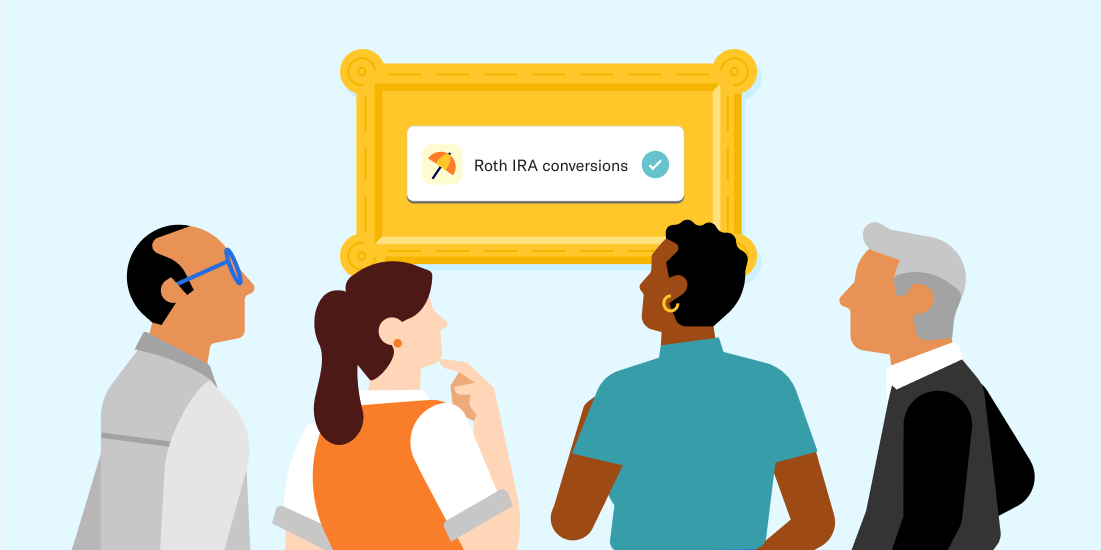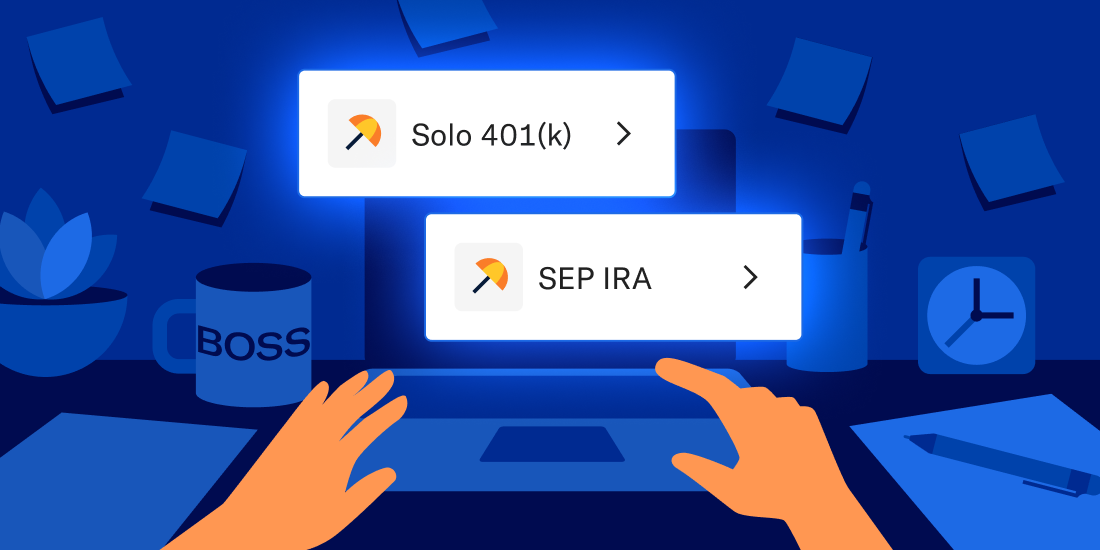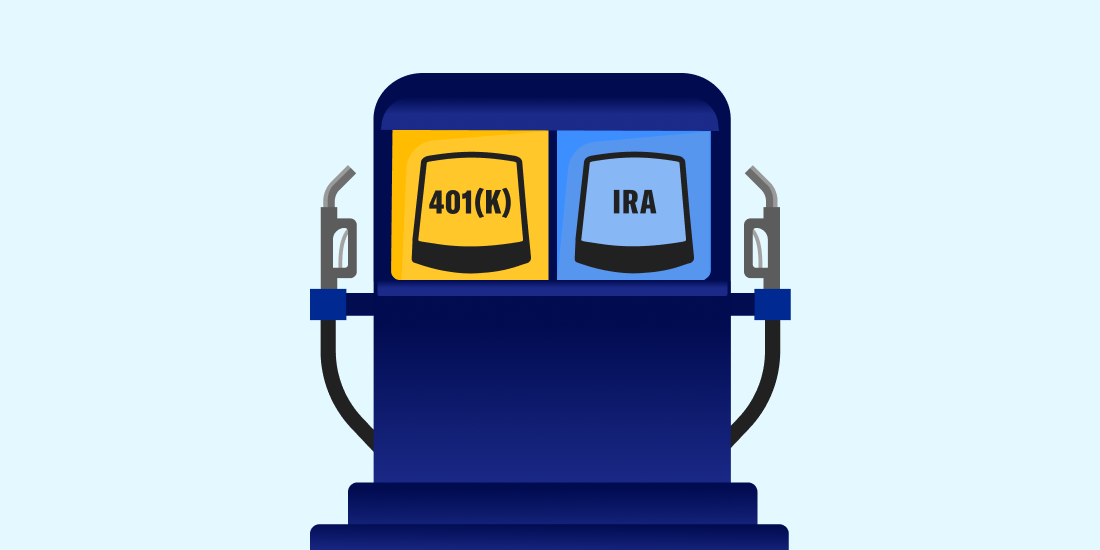Investing Accounts

Featured articles
-
![]()
How to transform your HSA into the ultimate investment vehicle
With a little planning, the triple tax advantages of a Health Savings Account can be put to ...
How to transform your HSA into the ultimate investment vehicle With a little planning, the triple tax advantages of a Health Savings Account can be put to use for retirement. Health Savings Accounts (HSAs), as the name implies, help people save for medical expenses. —and many can double as triple tax-advantaged investing accounts. Before we walk you through those tax advantages, and the "shoebox" strategy that unlocks them for retirement, here’s an important caveat upfront: You can only contribute to an HSA by meeting a few requirements, namely being enrolled in a high deductible health plan (HDHP). This type of health insurance isn’t for everyone. It comes with the potential for high out-of-pocket medical costs, so it's typically best suited for healthier individuals. But if you find an HDHP makes sense for your situation, consider opening an HSA. Then strap in for some unparalleled tax treatment. How the small-but-mighty HSA holds its own Relative to the 401(k) and IRA, an HSA has modest contribution limits of $4,400 for plans with individual coverage and $8,750 for those with family coverage. That's as of 2025. But those dollars, when invested, pack a much heavier punch. Because while 401(k)s and IRAs come with either tax-deferred contributions or tax-free withdrawals, HSAs offer both. Toss in tax-free growth, and that’s where the “triple” in triple tax-advantaged comes from. Tax-free contributions Tax-free growth Tax-free withdrawals Traditional 401(k)/IRA ✓ ✓ X Roth 401(k)/IRA X ✓ ✓ HSA ✓ ✓ ✓ Don't get us wrong; two tax perks are nothing to sneeze at. In some cases, such as when matching money is on the table, you likely should start filling up your 401(k) first. But an HSA can make for a great addition to your lineup of retirement accounts. Here's how to make it happen. Unboxing the HSA shoebox strategy Once you’re enrolled in an HDHP, you can open an HSA either through your employer or on your own before contributing to it and investing the funds. Similar to 401(k)s, an HSA is yours and stays with you after you leave your job. From there, repurposing its tax advantages for retirement boils down to three simple steps: Step 1: Save your receipts Here’s where the “shoebox” strategy gets its name. A key feature of HSAs is there’s no time limit for getting a qualified medical expense (QME) reimbursed. That’s how a surgery in your 40s can become retirement income in your 60s. Just keep your QME receipts stashed safely in a shoebox, folder, you name it. And bear in mind, any expenses you racked up before you opened an HSA aren’t eligible for reimbursement. Step 2: Do nothing Leave your HSA investments untouched and let compound growth do its thing. Consider paying for routine medical expenses with cash on hand, and building up an emergency fund as a hedge against bad luck and that high deductible you signed up for. Step 3: Come retirement, cash in Years or even decades down the road, when the time comes to start tapping into your HSA for retirement income, simply start cashing in those QME receipts. As we mentioned earlier, there's no time limit for getting reimbursed, so you can wait as long as you want or need before making tax-free withdrawals. You can technically use your HSA penalty-free for anything, no receipts required, after you turn 65. But crucially, those non-QME withdrawals count as taxable income, negating one of your HSA’s three precious tax advantages. See all your retirement accounts—HSA included—side-by-side If or when the time comes for you to set up an HSA, you’ll be ready to make the most of it for retirement. And by connecting your external HSA account to Betterment, you can see it side-by-side with all the other accounts in your retirement goal. It may not add much to your overall balance in the beginning, but with time—and triple the tax advantages—that may change soon enough. -
![]()
Backdoor Roths and beyond: The four camps who can benefit
Roth IRA conversions can unlock serious savings, especially if you find yourself in one of ...
Backdoor Roths and beyond: The four camps who can benefit Roth IRA conversions can unlock serious savings, especially if you find yourself in one of these scenarios. Roth IRAs and their tax-free perks are pretty great—so great that in some scenarios, it can make sense to convert pre-tax dollars from traditional retirement accounts into post-tax dollars in a Roth IRA. This is what’s known as a Roth conversion. You’re effectively taking those pre-tax funds and telling Uncle Sam you’d rather pay taxes on them now in exchange for the benefit of tax-free and penalty-free withdrawals in retirement. And if you need the money earlier, the IRS requires only that you wait five years before withdrawing each conversion to avoid a 10% penalty. So who do Roth conversions appeal to in particular? Four types of people: High earners and the “backdoor” Roth conversion Recent retirees and unwelcome RMDs Early retirees and the Roth conversion “ladder” People experiencing temporary income dips High earners and the “backdoor” Roth conversion Did you know the IRS restricts access to Roth IRAs based on income? Shut the front door! Yes, if your income exceeds these eligibility limits, you can’t contribute directly to a Roth IRA. But as the saying goes, when one door closes, another door opens. A “backdoor,” more specifically. So if you make too much money, fear not – you can contribute indirectly to a Roth IRA via a Roth conversion widely known as a “backdoor” Roth. This entails contributing post-tax dollars first to a traditional IRA, then converting those funds to a Roth IRA. If you’ve never contributed to a traditional IRA before, pulling off a backdoor Roth can be simple, especially if you use Betterment. Open both a traditional and Roth IRA with us, fund the traditional, then convert those funds to your Roth IRA once they’ve settled. Done! If you have any existing traditional IRA funds, however, things get a little more complicated due to something called the pro rata rule. In short, you need to move any pre-tax dollars out of your traditional IRA(s) into an employer-sponsored retirement account like a 401(k) before you can use the account as a backdoor. This gets even more complicated if you have both pre- and post-tax dollars mixed together in your traditional IRA(s). Before going down the road of a backdoor Roth conversion, or any Roth conversion really, we highly recommend seeking the advice of a financial advisor, as well as a tax advisor in certain cases. They can help assess both your current situation and future projections. Recent retirees and unwelcome RMDs The IRS doesn’t let you keep funds in your traditional retirement accounts indefinitely. They’re meant to be spent, after all. So starting at age 73, annual required minimum distributions (RMDs) from these accounts kick in. RMDs aren’t inherently a bad thing, but if your expenses can already be covered from other sources, RMDs will just raise your tax bill unnecessarily. You can get ahead of this and lower your future amount of RMDs by converting traditional account funds to a Roth IRA before you reach RMD age. That’s because Roth IRAs are exempt from RMDs. And as an added benefit, you’ll minimize taxes on Social Security benefits and Medicare premiums later on in retirement. Just make sure you convert those funds before you turn 73, because once RMDs kick in, those amounts can’t be converted. Early retirees and the Roth conversion “ladder” If you want to retire early, even by “just” a few years, you very well might encounter a problem: Most of your retirement savings are tied up in tax-advantaged 401(k)s and IRAs, which slap you with a 10% penalty if you withdraw the funds before the age of 59 ½. A few exceptions to this early withdrawal rule exist, the biggest for early retirees being that contributions to a Roth IRA (i.e., not the gains you may see on those contributions) can be withdrawn early without taxes or penalties, in this specific order: “Regular” contributions made directly to a Roth IRA. As an aside, you can always withdraw these funds tax-free and penalty-free without waiting five years. Once you’ve burned through regular contributions, the IRS allows you to withdraw contributions that were converted from traditional 401(k)s and traditional IRAs! You won’t pay any additional taxes on these withdrawn contributions because taxes have already been paid. But withdrawn conversions (item #2 above) typically are still subject to a 10% penalty if withdrawn before 5 years. Think of this rule as a speed bump in an otherwise swift shortcut. So what does all of this mean for early retirees? Starting five years before they plan on retiring, they can create a “ladder” looking something like the table below (note: dollar amounts are hypothetical). They convert funds each year, pay taxes on them at that time, then withdraw them five years later 10% penalty-free and sans any additional taxes. Time Amount converted Amount withdrawn Source of withdrawal 5 years pre-retirement $40,000 $0 N/A 4 years pre-retirement $40,000 $0 N/A 3 years pre-retirement $40,000 $0 N/A 2 years pre-retirement $40,000 $0 N/A 1 year pre-retirement $40,000 $0 N/A Retired early! 🎉 Year 1 of retirement $40,000 $40,000 5 years pre-retirement Year 2 of retirement $40,000 $40,000 4 years pre-retirement Year 3 of retirement $40,000 $40,000 3 years pre-retirement Year 4 of retirement $40,000 $40,000 2 years pre-retirement Year 5 of retirement $40,000 $40,000 1 year pre-retirement Etc. Etc. Etc. Etc. People experiencing temporary income dips Say you find yourself staring at a significantly smaller income for the year. Maybe you lost your job. Maybe you work on commission and had a down year. Or maybe you had a big tax writeoff. Whatever the reason, that dip in income means you’re currently in a lower tax bracket, and it may be wise to pay taxes on some of your pre-tax investments now at that lower rate compared to the higher rate when your income bounces back. Watch out for potential Roth conversion pitfalls Each of these scenarios requires careful tax planning, so again, we recommend working with a trusted financial advisor and/or tax advisor. They can help you avoid the most common Roth conversion mistakes and take full advantage of this post-tax money maneuver. Our CERTIFIED FINANCIAL PLANNER™ professionals are here to offer on-demand guidance. -
![]()
Solo 401(k)s vs. SEP IRAs: Sizing up your saving options while self-employed
Both retirement accounts offer high contribution limits, but which one is right for you?
Solo 401(k)s vs. SEP IRAs: Sizing up your saving options while self-employed Both retirement accounts offer high contribution limits, but which one is right for you? If you’re self-employed, you likely wear several ill-fitting hats: accountant, admin, HR rep. And that last one is low-key important, because it means no one is setting up a retirement plan for you. So what's a gig worker, small business owner, or solo practitioner to do? There’s the trusty IRA, of course. But its tax benefits phase out at certain income levels, and its $7,500 annual contribution limit fills up fast. You may want—or need—to save more to realize your retirement goal. Luckily, two lesser-known retirement accounts offer self-employed workers 10x more capacity for tax-advantaged investing: the solo 401(k) and the SEP IRA. They’re similar in that sense (high contribution limits), but they also differ in some important ways. We’ve found that for many self-employed workers, choosing between the two often hinges on their hiring or lack thereof: 👉 No employees beyond a spouse, and no plans to hire? Consider a solo if you prioritize Roth access and a slight edge in contribution limits. Consider a SEP if you prioritize less administrative work. 👉 See yourself hiring a few employees in the not-so-distant future? Consider starting with a solo 401(k), then transitioning to a group 401(k) plan if you prioritize Roth access and more flexibility in how you structure employee contributions. Consider a SEP for slightly easier admin, and the ability to pause contributions to your employees’ SEPs during down years. 👉 Planning to expand beyond 5-10 employees at some point? Consider the solo-to-group 401(k) move for more flexibility in how you structure employee contributions. You can max out your own retirement savings, for example, while letting employees decide their own contribution rates. That’s the TL;DR version. For a deeper dive, let’s compare the two accounts across a few categories: High contribution limits Easy admin Roth access Small business growth High contribution limits Both accounts let you save plenty for retirement—upwards of $70,000 a year—but solos give you a couple of ways to stretch that even further: Case #1: You’re playing catch-up If you're age 50 or older and catching up on your retirement savings, a solo 401(k) offers additional “catch-up” contributions of $7,500 each year, or $11,250 for those 60-63. Note that starting in 2026, any catch-up contributions must go into a Roth solo specifically (more on those below) if you received more than $145,000 in FICA wages (salaries, commissions, etc.) the prior year from your solo’s sponsoring company. Case #2: You’re a middle class super saver Say you earn less than $280,000, but you save well above the standard advice of 10-15% for retirement. In this scenario, you may run up against the SEP’s 25% compensation cap before you reach its overall $70,000 limit. But with solos, you can contribute as both an employer (up to 25% of compensation) and an employee (up to $23,500) until you hit the overall limit. ⚖️ Advantage: solo 401(k) Easy admin Both a solo 401(k) and SEP IRA, assuming they’re streamlined digital offerings such as ours, are simple to set up. You can open a Betterment SEP entirely online, while a Betterment solo requires a quick call with our Licensed Concierge team to get the ball rolling. Each account type is relatively low maintenance as well. Neither a SEP nor a solo require annual paperwork, with the one exception being for solo 401(k) balances that exceed $250,000. In that case, the IRS requires solo owners (aka “sponsors”) to file Form 5500-EZ. While we’re not a tax advisor, and always recommend working with one, the form is relatively straightforward to fill out. ⚖️ Advantage: SEP IRA Roth access Solos and SEPs are designed for retirement, so the IRS gives special tax treatment to both account types. But in practice, solos give you not one but two different flavors of tax treatment to choose from: You can contribute with pre-tax dollars via a traditional solo 401(k), lowering your taxes now and freeing up more money to invest. You also have the ability to contribute with after-tax dollars via a Roth solo 401(k), enjoying tax-free withdrawals in retirement. And Roth solo 401(k)s come with two added bonuses: Unlike traditional retirement accounts, they’re not subject to Required Minimum Distributions (RMDs) in retirement. Unlike Roth IRAs, they come with no income limits of any kind. Roth SEP IRAs, meanwhile, have technically been allowed by the IRS since 2023, but few providers have rolled them out yet. ⚖️ Advantage: Solo 401(k) Small business growth At some point in your self-employed journey, you may bring on hired help. In this case, it’s possible to transition both account types to accommodate employees. Some SEP providers let you shift from a solo practitioner to an employer who contributes to employees’ SEP IRAs on their behalf. But there’s a catch: you must contribute the same amount to their SEPs as you do your own, which may prove challenging depending on your business. With solo 401(k)s, on the other hand, you can include a spouse from the get-go, provided they’re an employee or co-owner of the business. And if you see the potential for expanding beyond a handful of employees down the road, it may make sense to simply transition your solo 401(k) to a group 401(k) plan and enjoy more flexibility in how you structure contributions for your team. Our support team handles moves like this often and can help you when the time comes. ⚖️ Advantage: Solo 401(k) So which account is right for you? The good news is both SEP IRAs and solo 401(k)s offer excellent tax advantages that can help you reach retirement quicker. We offer both at Betterment, and make it easy to open either one. Because when you’re self-employed, you’re busy running your business. Optimizing your retirement savings? Leave that to us for one less hat in your wardrobe.
Considering a major transfer? Get one-on-one help with one of our experts. Explore our licensed concierge
All Investing Accounts articles
-
![]()
What’s an IRA and how does it work?
What’s an IRA and how does it work? Nov 7, 2025 7:00:00 AM Learn more about this investment account with tax advantages that help you prepare for retirement. An Individual Retirement Account (IRA) is a type of investment account with tax advantages that helps you prepare for retirement. Depending on the type of IRA you invest in, you can make tax-free withdrawals when you retire, earn tax-free interest, or put off paying taxes until retirement. The sooner you start investing in an IRA, the more time you have to accrue interest before you reach retirement age. But an IRA isn’t the only kind of investment account for retirement planning. And there are multiple types of IRAs available. If you’re planning for retirement, it’s important to understand your options and learn how to maximize your tax benefits. If your employer offers a 401(k), it may be a better option than investing in an IRA. While anyone can open an IRA, employers typically match a portion of your contribution to a 401(k) account, helping your investment grow faster. In this article, we’ll walk you through: What makes an IRA different from a 401(k) The types of IRAs How to choose between a Roth IRA and a Traditional IRA Timing your IRA contributions IRA recharacterizations Roth IRA conversions Let’s start by looking at what makes an Individual Retirement Account different from a 401(k). How is an IRA different from a 401(k)? When it comes to retirement planning, the two most common investment accounts people talk about are IRAs and 401(k)s. 401(k)s offer similar tax advantages to IRAs, but not everyone has this option. Anyone can start an IRA, but a 401(k) is what’s known as an employer-sponsored retirement plan. It’s only available through an employer. Other differences between these two types of accounts are that: Employers often match a percentage of your contributions to a 401(k) 401(k) contributions come right out of your paycheck 401(k) contribution limits are significantly higher If your employer matches contributions to a 401(k), they’re basically giving you free money you wouldn’t otherwise receive. It’s typically wise to take advantage of this match before looking to an IRA. With an Individual Retirement Account, you determine exactly when and how to make contributions. You can put money into an IRA at any time over the course of the year, whereas a 401(k) almost always has to come from your paycheck. Note that annual IRA contributions can be made up until that year’s tax filing deadline, whereas the contribution deadline for 401(k)s is at the end of each calendar year. Learning how to time your IRA contributions can significantly increase your earnings over time. Every year, you’re only allowed to put a fixed amount of money into a retirement account, and the exact amount often changes year-to-year. For an IRA, the contribution limit for 2025 is $7,500 if you’re under 50, or $8,600 if you’re 50 or older. For a 401(k), the contribution limit for 2025 is $24,500 if you’re under 50, or $32,500 if you’re 50 or older. These contribution limits are separate, so it’s not uncommon for investors to have both a 401(k) and an IRA. And as a side note for those 50 or older, starting in 2026, 401(k) catch-up contributions must go into a Roth 401(k) specifically if you received more than $145,000 in FICA wages (salaries, commissions, etc.) the prior year. What are the types of IRAs? The challenge for most people looking into IRAs is understanding which kind of IRA is most advantageous for them. For many, this boils down to Roth and/or Traditional. The advantages of each can shift over time as tax laws and your income level changes, so this is a common periodic question for even advanced investors. As a side note, there are other IRA options suited for the self-employed or small business owner, such as the SEP IRA, but we won’t go into those here. As mentioned in the section above, IRA contributions are not made directly from your paycheck. That means that the money you are contributing to an IRA has already been taxed. When you contribute to a Traditional IRA, your contribution may be tax-deductible. Whether you are eligible to take a full, partial, or any deduction at all depends on if you or your spouse is covered by an employer retirement plan (i.e. a 401(k)) and your income level (more on these limitations later). Once funds are in your Traditional IRA, you will not pay any income taxes on investment earnings until you begin to withdraw from the account. This means that you benefit from “tax-deferred” growth. If you were able to deduct your contributions, you will pay income tax on the contributions as well as earnings at the time of withdrawal. If you were not eligible to take a deduction on your contributions, then you generally will only pay taxes on the earnings at the time of withdrawal. This is done on a “pro-rata” basis. Comparatively, contributions to a Roth IRA are not tax deductible. When it comes time to withdraw from your Roth IRA, your withdrawals will generally be tax free—even the interest you’ve accumulated. How to choose between a Roth IRA and a Traditional IRA For most people, choosing an Individual Retirement Account is a matter of deciding between a Roth IRA and a Traditional IRA. Neither option is inherently better: it depends on your income and your tax bracket now and in retirement. Your income determines whether you can contribute to a Roth IRA, and also whether you are eligible to deduct contributions made to a Traditional IRA. However, the IRS doesn’t use your gross income; they look at your modified adjusted gross income, which can be different from taxable income. With Roth IRAs, your ability to contribute is phased out when your modified adjusted gross income (MAGI) reaches a certain level. If you’re eligible for both types of IRAs, the choice often comes down to what tax bracket you’re in now, and what tax bracket you think you’ll be in when you retire. If you think you’ll be in a lower tax bracket when you retire, postponing taxes with a Traditional IRA will likely result in you keeping more of your money. If you expect to be in a higher tax bracket when you retire, using a Roth IRA to pay taxes now may be the better choice. The best type of account for you may change over time, but making a choice now doesn’t lock you into one option forever. So as you start retirement planning, focus on where you are now and where you’d like to be then. It’s healthy to re-evaluate your position periodically, especially when you go through major financial transitions such as getting a new job, losing a job, receiving a promotion, or creating an additional revenue stream. Timing IRA contributions: why earlier is better Regardless of which type of IRA you select, it helps to understand how the timing of your contributions impacts your investment returns. It’s your choice to either make a maximum contribution early in the year, contribute over time, or wait until the deadline. By timing your contribution to be as early as possible, you can maximize your time in the market, which could help you gain more returns over time. Consider the difference between making a maximum contribution on January 1 and making it on December 1 each year. Then suppose, hypothetically, that your annual growth rate is 10%. Here’s what the difference could look like between an IRA with early contributions and an IRA with late contributions: This figure represents the scenarios mentioned above.‘Deposit Early’ indicates depositing $6,000 on January 1 of each calendar year, whereas ‘Deposit Late’ indicates depositing $6,000 on December 1 of the same calendar year, both every year for a ten-year period. Calculations assume a hypothetical growth rate of 10% annually. The hypothetical growth rate is not based on, and should not be interpreted to reflect, any Betterment portfolio, or any other investment or portfolio, and is purely an arbitrary number. Further, the results are solely based on the calculations mentioned in the preceding sentences. These figures do not take into account any dividend reinvestment, taxes, market changes, or any fees charged. The illustration does not reflect the chance for loss or gain, and actual returns can vary from those above. What’s an IRA recharacterization? You might contribute to an IRA before you have started filing your taxes and may not know exactly what your Modified Adjusted Gross Income will be for that year. Therefore, you may not know whether you will be eligible to contribute to a Roth IRA, or if you will be able to deduct your contributions to a Traditional IRA. In some cases, the IRS allows you to reclassify your IRA contributions. A recharacterization changes your contributions (plus the gains or minus the losses attributed to them) from a Traditional IRA to a Roth IRA, or, from a Roth IRA to a Traditional IRA. It’s most common to recharacterize a Roth IRA to a Traditional IRA. Generally, there are no taxes associated with a recharacterization if the amount you recharacterize includes gains or excludes dollars lost. Here are three instances where a recharacterization may be right for you: If you made a Roth contribution during the year but discovered later that your income was high enough to reduce the amount you were allowed to contribute—or prohibit you from contributing at all. If you contributed to a Traditional IRA because you thought your income would be above the allowed limits for a Roth IRA contribution, but your income ended up lower than you’d expected. If you contributed to a Roth IRA, but while preparing your tax return, you realize that you’d benefit more from the immediate tax deduction a Traditional IRA contribution would potentially provide. Additionally, we have listed a few methods that can be used to correct an over-contribution to an IRA in this FAQ resource. You cannot recharacterize an amount that’s more than your allowable maximum annual contribution. You have until each year’s tax filing deadline to recharacterize—unless you file for an extension or you file an amended tax return. What’s a Roth conversion? A Roth conversion is a one-way street. It’s a potentially taxable event where funds are transferred from a Traditional IRA to a Roth IRA. There is no such thing as a Roth to Traditional conversion. It is different from a recharacterization because you are not changing the type of IRA that you contributed to for that particular year. There is no cap on the amount that’s eligible to be converted, so the sky’s the limit for those that choose to convert. We go into Roth conversions in more detail in our Help Center. -
![]()
Traditional vs. Roth: Should you take your tax break now, or later?
Traditional vs. Roth: Should you take your tax break now, or later? Sep 23, 2025 12:15:12 PM Picking up where the standard guidance leaves off There can be endless decisions to make when investing. Chief among them: Whether to save for retirement through a traditional IRA and/or 401(k), or the Roth variety. With traditional accounts, you typically invest with pre-tax money, then pay taxes on withdrawals later in retirement. This lowers your taxes today and frees up more money to invest. With Roth accounts, you contribute money that's already been taxed, then enjoy tax-free withdrawals once you turn 59½, with no required minimum distributions. When it comes to which is better, here’s the advice you’ll often hear: Traditionals make more sense if your current tax bracket is higher than where you expect it to be in retirement. And vice versa with Roths. It's a start, but not always helpful in practice. Tax brackets can be confusing, for one, and nobody knows what they'll look like decades from now. People's incomes also ebb and flow with age, as do their tax brackets. Luckily, data from the U.S. Bureau of Labor Statistics can help us eyeball these shifts and plot out when each account type tends to shine brightest. The upward and downward slopes of spending When we look at American's average spending by age, we see it often peaks in middle age and declines as we approach our traditional retirement years. Connecting the dots, this means that traditional contributions often make more sense during the middle portion of workers’ careers. They’re likely earning and paying more in taxes than they will in retirement, so it makes sense to shift some of that tax obligation to a lower bracket down the road. For those with lower incomes, pairing those tax-deductible deposits with the standard deduction can also help squeeze more of their taxable income into the 12% tax bracket. The next bracket takes a big step up to 22%. As one’s income rises, however, another wrinkle may come into play. The IRA income limit exception If your income grows to a certain point (see the table below), you’ll face one of those so-called “champagne problems”: the tax deductions of a traditional IRA will begin to phase out, meaning it’s Roth or nothing if you want at least a partial tax break. Earn even more, and your Roth access will eventually dry up too, although there’s a handy “backdoor” option that’s worth checking out. A 401(k), as a side note, has no income restrictions for either contribution type. 2025 IRA income limits Traditional IRA* Modified Adjusted Gross Income (MAGI) Roth IRA Modified Adjusted Gross Income (MAGI) Full tax deduction $0-$79,000 (single) Full contribution $0-$149,999 (single) $0-$126,000 (married) $0-$235,999 (married) Partial tax deduction $79,001-$88,999 (single) Partial contribution $150,000-$164,999 (single) $126,001-$145,999 (married) $236,000-$245,999 (married) No tax deduction** $89,000 and up (single) No contribution $165,000 and up (single) $146,000 and up (married) $246,000 and up (married) *If covered by a retirement plan at work **Anyone is eligible to make taxable contributions to a traditional IRA Source: IRS This is why blanket statements like “Roths are better” don’t hold much water. The decision boils down to your personal income situation, and that’s subject to change. With Betterment, however, our Forecaster tool does much of the work for you. Simply scroll down to its “How to save” section, and we’ll use your self-reported financial information to suggest not only the optimal order of retirement account types, but whether traditional or Roth contributions make more sense based on your projected future tax bracket. Just be sure to update your info as needed (raises, marital status, etc.) for the most accurate estimates. Now or later? Now that’s one less call to make The traditional vs Roth debate will likely rage on for years. But between content like this, and tools like Forecaster, we do our best to help you quickly clear this common investing hurdle. If your income is trending anything like the averages above, traditional deposits may make more sense, but the advantage will be slight, and it never hurts to hedge. Having both Roth and traditional funds gives you more flexibility when managing your income in retirement. Plus, you can spend less time stressing over the two, and more time building momentum toward your goal. -
![]()
A guide to solo 401(k)s for self-employed individuals
A guide to solo 401(k)s for self-employed individuals Sep 16, 2025 2:28:24 PM If you're self-employed, here are five reasons why a solo 401(k) might just be one of the best ways to supercharge your retirement savings. If you work as a freelancer, solo-consultant, or individual small business owner, you’ve likely wondered: How should I save for retirement? Wonder no more, here’s your answer… Meet the solo 401(k): Solo 401(k)s are often overlooked in the world of retirement accounts, but they can be an effective way for self-employed individuals to save. Solo 401(k)s offer flexibility, high contribution limits, and tax benefits. What is a solo 401(k)? A solo 401(k) is essentially a 401(k) plan for self-employed individuals or business owners who don’t have full-time employees beyond themselves (and possibly their spouse). It works similarly to a regular 401(k)—with employee and employer contribution options—but is designed specifically for those without other full-time employees. It offers more flexibility than options like SEP IRAs (which only allow employer contributions) or SIMPLE IRAs (with lower contribution limits). Many people mistakenly think solo 401(k)s are complicated or only for high earners, but the truth is that they’re pretty straightforward, and they’re great for self-employed individuals of all income levels. Top 5 benefits of solo 401(k)s for self-employed individuals Benefit 1: Solo 401(k)s are tailored for entrepreneurs like you If you're a sole proprietor, freelancer, or gig worker, you know how challenging it can be to balance inconsistent income with long-term financial goals. A solo 401(k) lets you ramp up your contributions in profitable years and scale back if your income takes a dip. You can also contribute as both the employee and the employer, giving you more ways to save. Another big perk is the ability to make contributions for your spouse. If they’re also working with you, they can contribute to the solo 401(k) with earnings from your business, potentially doubling your retirement savings. This may also help reduce your household’s taxable income if you’re making pre-tax contributions. Benefit 2: High contribution limits One of the standout features of a solo 401(k) is the ability to make both employee and employer contributions: Employee contribution: In 2025, you can contribute up to $23,500 as an employee. And if you're over 50, there’s an additional benefit: You can make "catch-up" contributions of up to $7,500 for ages 50-59 and over age 64, and “super-catch-up” contributions of up to $11,250 for ages 60-63. Employer contribution: As the business owner, you can contribute up to 25% of your net self-employment income (20% for sole proprietors and partnerships). In total, you can contribute $70,000 (not including catch-up contributions) to your solo 401(k) in 2025. This means more room for tax-deferred growth and larger savings overall. Benefit 3: Tax advantages Solo 401(k)s offer some excellent tax benefits that can help reduce your tax burden today while saving for retirement. Pre-tax contributions: If you want to lower your taxable income now, you can contribute pre-tax dollars to your traditional solo 401(k). This helps to reduce your current tax bill, which is especially helpful in high-income years. Roth contributions: Many solo 401(k) plans also allow you to make Roth contributions. This means you pay taxes on the money now, but qualified withdrawals in retirement are tax-free. Offering both pre-tax and Roth options gives you flexibility in managing both your current and future tax situations. SECURE 2.0 tax credit: Betterment includes an Automatic Contribution Arrangement of three percent per pay period, allowing new plans to claim a $500 tax credit per year for three years. Benefit 4: No income limits for Roth contributions Unlike Roth IRAs, solo 401(k)s don’t have income limits for making Roth contributions. If your income is too high to qualify for a Roth IRA, you can still contribute to a Roth solo 401(k) and enjoy tax-free growth. Benefit 5: Prior year contributions for new plans Thanks to the SECURE Act 2.0, solo 401(k) plans now come with a neat little trick: You can set up a solo 401(k) after the new year and still contribute for the previous year. For example, if you set up a solo 401(k) in March 2025, you can still make 2024 contributions until your tax filing deadline (April 15, or October 15 with an extension). This gives you a chance to catch up on retirement savings that may have slipped through the cracks. Getting started: Choosing a solo 401(k) provider When it comes to setting up your solo 401(k), you’ll want to choose a provider that makes things simple. Look for one that offers transparent fees, easy-to-use digital tools, and a solid track record of compliance and recordkeeping. Additionally, you may want to consider solo 401(k) providers that offer a range of financial services like cash accounts or investing services, that way you can consolidate your financial life onto one platform. Meet the Betterment solo 401(k) Betterment’s solo 401(k) is a low-cost investment option designed for the self-employed. Here’s what you get with Betterment’s solo 401(k): 100% digital setup. No paperwork or mailing checks. Open and manage your account entirely online. Unique flexibility. You have the option to open a traditional or Roth solo 401(k), and your spouse can contribute, too. Expert-built portfolios. Choose from our selection of low-cost exchange-traded funds (ETFs) to help you build wealth over the long term. $1,500 tax credit. Plans include automatic contribution arrangements and potentially qualify for a tax credit of up to $500 per year for three years. Higher contribution limits. You can contribute $70,000 (plus up to $11,250 more in catch-up contributions depending on your age) with a solo 401(k). -
![]()
Should you fill up your 401(k) first, or your IRA?
Should you fill up your 401(k) first, or your IRA? Oct 24, 2024 11:30:19 AM Navigating one of retirement saving’s first forks in the road. Can you have both a 401(k) and an IRA? Yes! But having access to both accounts begs the question: Which one is more deserving of your retirement dollars? The answer, as it so often does in personal finance, depends on your situation. So let’s explore when a 401(k)-first mentality makes sense, and when it doesn't, before closing things out with a wildcard third option that might warrant both your attention and your savings. A quick refresher on retirement accounts For the sake of this conversation, we're focusing on the two most common retirement accounts: the IRA and the 401(k), including the non-profit/public equivalent 403(b) account. Both come with built-in tax advantages, annual contribution limits, and eligibility criteria: 401(k) Accessible to: Anyone whose employer offers one 2024 contribution limit: $24,500 (for those under 50) IRA Accessible to: Anyone whose Modified Adjusted Gross Income (MAGI) falls below the IRS's eligibility limits (see table below) qualifies for tax benefits. 2024 contribution limit: $7,500 (for those under 50) 2025 IRA income limits Traditional IRA* Modified Adjusted Gross Income (MAGI) Roth IRA Modified Adjusted Gross Income (MAGI) Full tax deduction $0-$79,000 (single) Full contribution $0-$149,999 (single) $0-$126,000 (married) $0-$235,999 (married) Partial tax deduction $79,001-$88,999 (single) Partial contribution $150,000-$164,999 (single) $126,001-$145,999 (married) $236,000-$245,999 (married) No tax deduction** $89,000 and up (single) No contribution $165,000 and up (single) $146,000 and up (married) $246,000 and up (married) *If covered by a retirement plan at work **Anyone is eligible to make taxable contributions to a traditional IRA Source: IRS Power ranking your retirement accounts In general, there are a few reasons why you might default to the 401(k), including but not limited to: You can contribute by way of payroll deductions and ease the sting of saving. Many employers offer matching contributions, aka free money. And you can contribute significantly more money to them than IRAs. Altogether, that's a lot of pros working in the 401(k)’s favor. But not all 401(k)s are created equal. Some providers charge more for limited investment options. According to the 24th edition of the 401k Averages Book, the average investment expense for some smaller plans1 was 1.12%. By comparison, you can invest with a Betterment IRA for an all-in fee well south of 1%. So ask your employer or 401(k) provider for help sizing up your total costs. Or take a look at your 401(k) statement for code names like: Management fees Asset-based fees Operating expenses Expense ratios If you find your 401(k) costs are significantly steeper than an IRA, consider the following order of operations: Fill up your 401(k) up to your employer’s match, assuming they offer one. Max out your IRA, assuming you’re eligible. Come back to your 401(k). On the other hand, if your 401(k)’s fees are competitive, congratulations! Things just got simpler. Consider maxing it out first before turning your attention to an IRA, or that wildcard option we mentioned earlier. A quick aside on the Health Savings Account (HSA) Sure, the name says "health," but HSAs can be repurposed for retirement savings as well. They come with a $4,400 contribution limit for individuals, and they’re available to anyone enrolled in a high-deductible health plan (HDHP). They’re also triple tax-advantaged, meaning money is tax-free going in, tax-free while it grows, and tax-free coming out, assuming it’s used for qualified expenses. That’s one more tax perk than 401(k)s and IRAs, which make you choose between either tax-deferred contributions or tax-free withdrawals. Tax-free contributions Tax-free growth Tax-free withdrawals Traditional 401(k)/IRA ✓ ✓ X Roth 401(k)/IRA X ✓ ✓ HSA ✓ ✓ ✓ So if an HDHP is right for your healthcare needs, consider prioritizing an HSA before an IRA. Between those two accounts and the 401(k), that's more than $30,000 worth of annual investing potential. Fill up those tanks, and you’ll be well on your way to retiring. Now just enjoy the ride. -
![]()
Three spring cleaning tips for savers
Three spring cleaning tips for savers Mar 18, 2024 3:43:06 PM Dusty, forgotten 401(k)s. IRAs left unmaxed from last year. With Tax Day around the corner, now’s a good time to get your accounts in order. Don’t look now, but Tax Day is just around the corner. We say this not to kill your vibe (promise). Temperatures are warming up, and we’ll all soon be swept up in summer fun. That’s why now’s the time to do a little spring financial cleaning. Before all the graduations, road trips, and weddings temporarily short circuit your brain’s budgeting apparatus. So pick a time, throw some music on, and knock out these three essential spring cleaning tasks. 1 | Consolidate your accounts and feel the power of one BIG number Investing and savings accounts can pile up over the years and become a little like that loose change lying around your house and car. A few quarters here, a handful of dimes there. It doesn’t seem like much separately. But it adds up. 401(k)s and IRAs are no different. A couple thousand in this one, a few hundred in that one. Sometimes there’s an account you forget about every year until the tax form comes. All that splintering of your money has several potential drawbacks, especially when it comes to investing accounts: External accounts serving the same goal could have wildly different levels of risk. External accounts miss out on our tax coordination perks and make it harder to use our Tax Loss Harvesting feature without incurring a wash sale. Last but definitely least, lots of small accounts can keep you from noticing your progress and celebrating a milestone. Special milestones like $25k, $50k, or even $100,000 saved for retirement. So we encourage you to consider rolling over old 401(k)s and IRAs into one place. If you’re not in love with the 401(k) plan a previous employer offered, you can even roll that into an IRA if it’s the right call for you. At the very least, it may spare you a few forms to input come tax time. 2 | Travel back in time and save some more Maybe you set the goal of maxing out your IRA last year and fell short. But you’re flush with cash now, possibly thanks to a bonus or a big tax refund that’s on the way. You’re in luck, because the IRS essentially lets you time travel for a saver’s do-over. You have until Tax Day of this year to max out your IRA’s limits for last year. Doctor Who approves. And we make it easy in practice. While making a deposit into your IRA, just select the tax year you want the deposit to go toward. 3 | Take a fresh look at your cash goals The early days of spring are an excellent time for a quick cash gut check: Do you have enough pocketed for that family vacation? Is your emergency fund funded to a point where you feel financially secure? If your tax return came back in the red, can you comfortably cover the expense? If you answer no to any of these questions, now’s the time to reassess your cash flow and redirect it to the right spots.
Looking for a specific topic?
- 401(k)s
- 529s
- Asset types
- Automation
- Benchmarks
- Bonds
- Budgeting
- Compound growth
- Costs
- Diversification
- Donating shares
- ETFs
- Education savings
- Emergency funds
- Financial advisors
- Financial goals
- Flexible portfolios
- Getting started investing
- Health Savings Accounts
- Home ownership
- IRAs
- Interest rates
- Investing accounts
- Market volatility
- Mutual funds
- Performance
- Portfolios
- Preparing to retire
- Retirement income
- Retirement planning
- Risk
- Rollovers and transfers
- Roth accounts
- Stocks
- Tax Coordination
- Tax loss harvesting
- Taxable accounts
- Taxes
No results found








